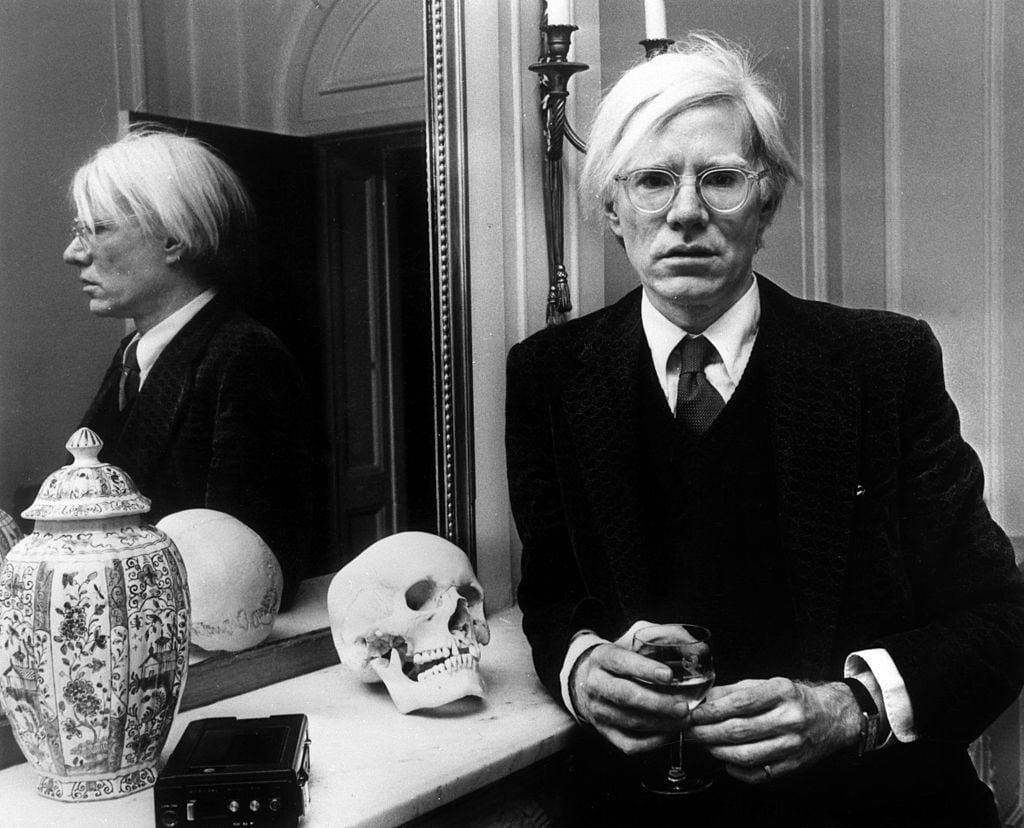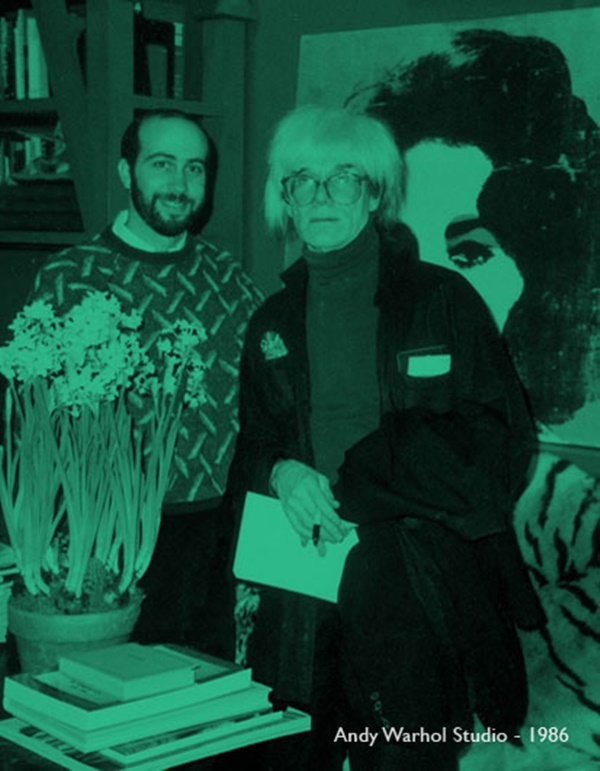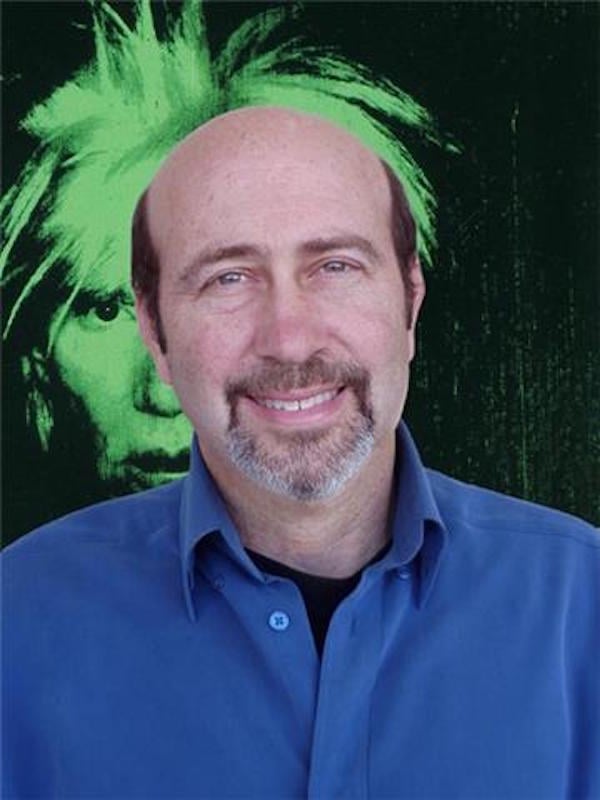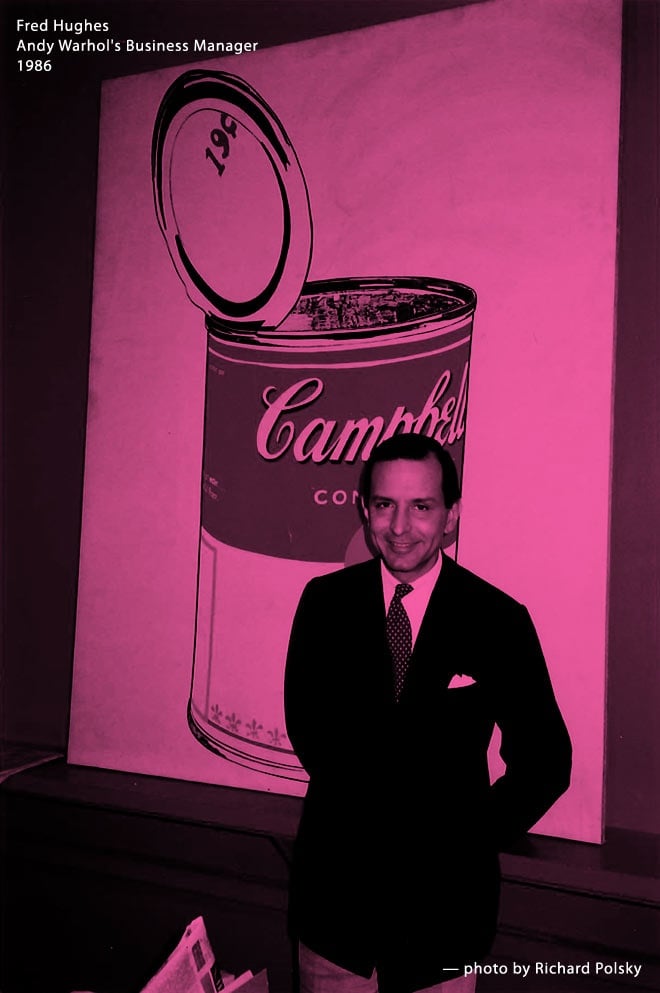People
The Warhol Market Gets Even Wilder as Richard Polsky Releases an Unauthorized Addendum to the Catalogue Raisonné
The “I Bought Andy Warhol” author believes he can offer disgruntled collectors a new outlet.

The “I Bought Andy Warhol” author believes he can offer disgruntled collectors a new outlet.

Eileen Kinsella

Few artists have been subject to more complex—and contentious—debates over authenticity than Andy Warhol. Now, author and art dealer Richard Polsky, who began offering authentication services for Warhol and other blue-chip art stars in 2015, is stepping further into the crossfire. artnet News can report that Polsky plans to launch his own unauthorized addition to the Warhol catalogue raisonné—and that he will include works that have been previously rejected by the Andy Warhol Foundation for the Visual Arts.
Polsky, who is calling his initiative the “RPAA Andy Warhol Catalogue Raisonné Addendum,” says he is stepping in to fill the void left by the Warhol Foundation, which announced in late 2011 that it would dissolve its authentication arm in the wake of pricey and bruising legal battles. One lawsuit with a disgruntled collector cost the foundation more than $6 million in legal fees before it was settled.
Now, the work owned by that collector, Joe Simon-Whelan, is included in the online listing for Polsky’s catalogue, which officially launches tomorrow.

Richard Polsky with Andy Warhol. Photo by Fred Hughes. Courtesy Richard Polsky
Polsky is a lifelong Warhol fan who has authored two books, I Bought Andy Warhol (2004) and I Sold Andy Warhol (Too Soon) (2009). He is up front about the fact that his proposed catalogue raisonné addition “has no connection to the official Andy Warhol Catalogue Raisonné sponsored by the Andy Warhol Foundation for the Visual Arts.”
For its part, the foundation has assembled its own official catalogues raisonnés, and is currently preparing the fifth volume, which covers paintings from 1976–78. The foundation also says that it will add works as they are discovered in an addendum to the official catalogue raisonné.

Richard Polsky. Courtesy of Richard Polsky.
Still, Polsky hopes to offer additional recourse to collectors who own works that have been left out. “Warhol put out so much work and so much of this is falling in between the cracks. There are paintings out there that are genuine and there are things I’ve examined that for various reasons didn’t pass muster with their people. My job is to be like Switzerland and to maintain my neutrality.”
He says the criteria for inclusion in the addendum “is any painting that I have examined and have deemed to be an authentic Warhol. This may include paintings that were ‘denied’ by the Andy Warhol Art Authentication Board or paintings that they never examined.”

Fred Hughes. Photo by Richard Polsky. Courtesy Richard Polsky.
The Warhol Foundation immediately confirmed this when reached for comment. A spokesperson told artnet News: “Mr. Polsky’s proposed ‘RPAA Andy Warhol Catalogue Raisonné Addendum’ is completely unauthorized and in no way recognized by The Warhol Foundation.”
Works that have been disputed by the foundation but made the cut for Polsky include a red self-portrait owned by Richard Ekstract and another owned by David Mearns and Susan Shaer.
Polsky charges a flat rate for examination: $2,500 for paintings and sculpture, $1,500 for drawings, and $1,250 for prints. But he says, “I make it clear. I don’t buy or sell anything I’ve authenticated.”
Update, July 19: This article has been updated to reflect the fact that the Andy Warhol Foundation for the Visual Arts is working on its own addendum to the official Andy Warhol catalogue raisonné.